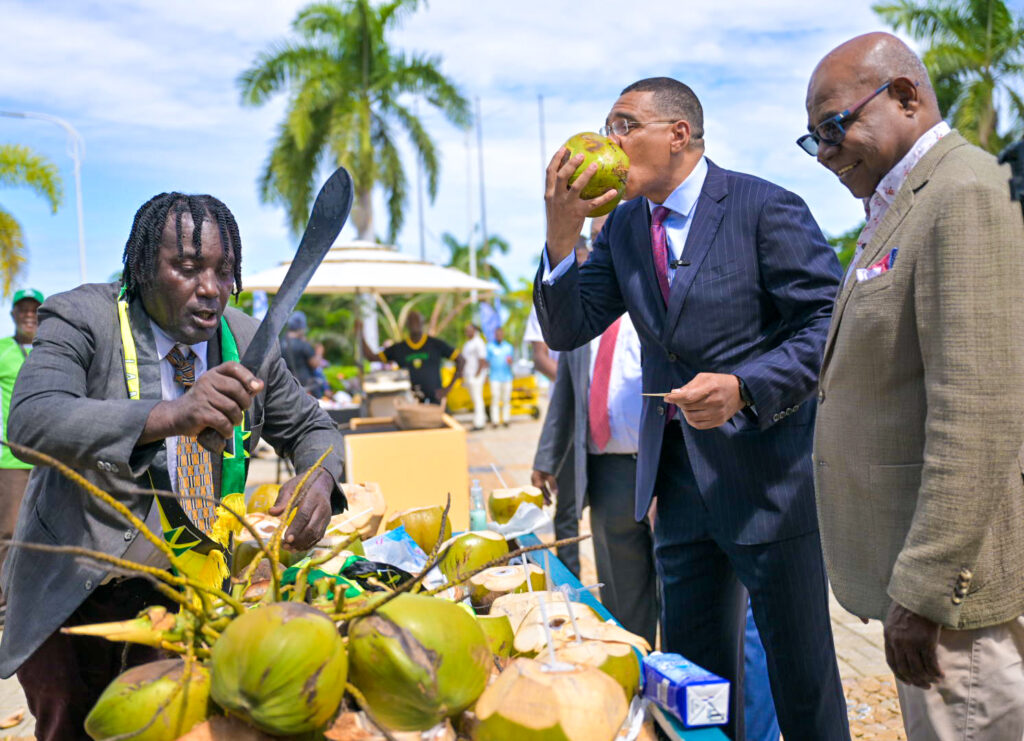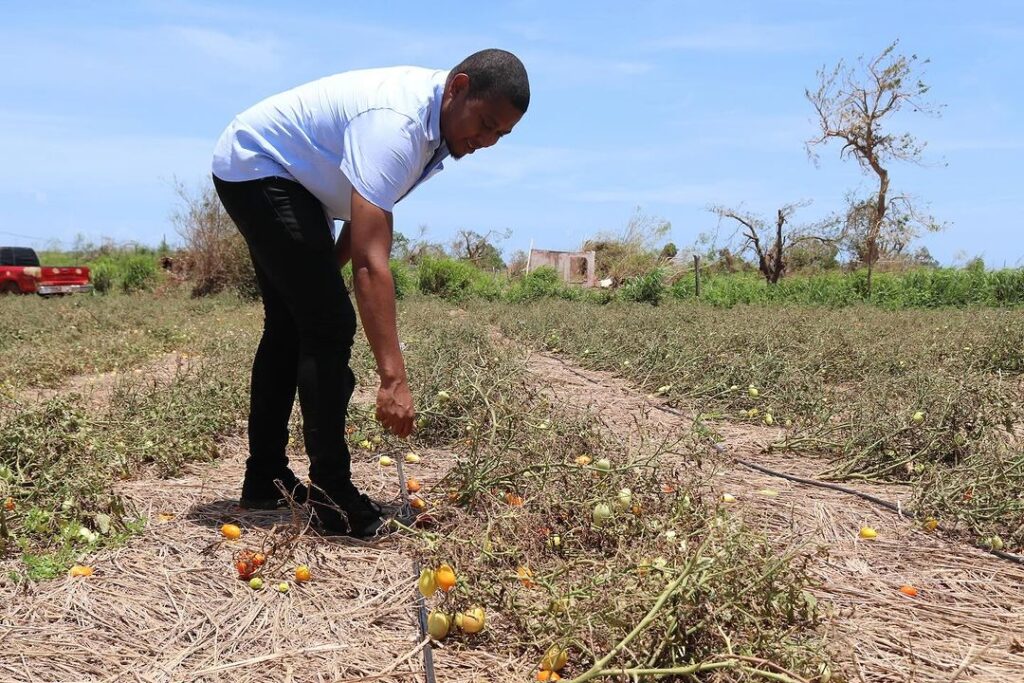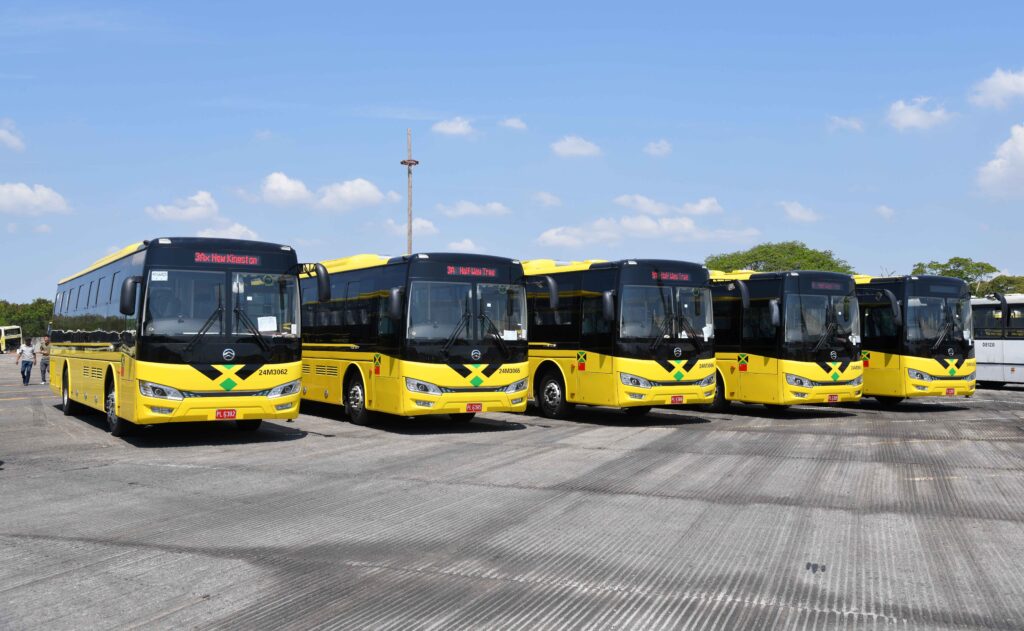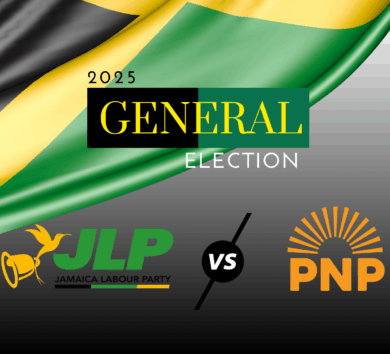

As we welcome 2025 with all the new opportunities and possibilities it promises, we give God thanks for sparing our lives to see yet another year and we spare a thought for those who left us in 2024.
Twenty-twenty-four tested our resilience, but it also revealed our strength. We faced challenges with courage and celebrated achievements with pride. Category 4 Hurricane Beryl badly damaged southern parishes, however, we staged the fastest and most comprehensive recovery from a weather event of that magnitude in Jamaica’s history. Within weeks of the disaster, your government was able to conduct assessments rapidly and distribute recovery grants of significant amounts. To date just under 14,000 cheques have been delivered to beneficiaries.
There is no question that this administration has had to deal with some of the greatest crises and shocks to have impacted the country in the last 100 years. Pandemic, global inflation, supply chain crisis, and climate change have generated crises and associated hurricanes, tropical storms, flooding, and droughts. Any truthful observer must admit that we have handled these crises comparatively better than previous governments and on par if not better than governments of peer countries regionally and even globally. We can be certain that 2025 will bring its own set of multiple, frequent, intense, and overlapping crises and challenges as global temperatures continue to rise, wars continue to drag on, and the global order becomes more uncertain. Rest assured that your government is preparing, constantly improving, and learning from every challenge to develop smart, caring and sustainable responses. Early this month I will receive the Disaster Risk Management Review Report which I commissioned after the passage of Hurricane Beryl, this will form the basis for a complete overhaul of our disaster preparedness and crisis management apparatus of government.

The lesson we take away from the 2024 chapter in our journey is that we must be ready for the next external economic shock, geopolitical crises, pandemic, or natural disaster.
We have had several significant achievements in the 2024 chapter, notably:
- The strategy of long-term investments in equipment, personnel, intelligence and leadership in our security forces is paying off. Serious crimes are down approximately 14% and murders are down approximately18%, the second consecutive year of reduction.
- Our economic performance continued to be strong, unemployment continued to decline to the lowest in our history, inflation declined to well within the targeted band of 4% to 6%, interest rates have come down steadily, our dollar has been trading stably over the past year, and our national debt to GDP ratio is set to fall below 70%, this is lowest in over 30 years.
- Our infrastructure programme for highway construction, water supply, broadband, parks, housing, hospitals, health centres, police stations, fire stations, and urban centres is incomparable to any other era in Jamaica’s independent history.
- Our social safety net programmes have seen significant increases in resources of up to 30% targeted at the most vulnerable, we have more than doubled the minimum wage, further increased the income tax threshold, executed the first ever reverse tax credit giveback, and we have increased the pay of public sector workers by over JA$200 billion.
These achievements are phenomenal and uncontestable. However, we also hear and pay close attention to the feeling and realities of many Jamaicans who have suffered through the global spike in inflation for the last 3 years due to the COVID pandemic and the supply chain shock. Food, electricity, transportation, medication and basic amenities have become unaffordable for many. I hear your cry regarding the cost of living.
Though the number of Jamaicans employed is the highest it has ever been, the minimum wage has been increased and wages generally have increased, we understand that wages have been so low for so long that there is still pent-up pressure despite the efforts of the government to create the economic environment where more Jamaicans can have income and inflation is controlled.

On the flip side, the economy has created more Jamaicans with income to effectively demand goods, such as cars and housing. The number of vehicles on our roads has almost doubled in the last 8 years to over 500,000. The housing market has not been so responsive to the increasing number of Jamaicans who are seeking housing solutions in the lower-income to lower-middle-income segment of the housing market. I hear the cry of the hairdresser, mechanics, clerks, and factory supervisors who have been contributing to the NHT for years but cannot find a house for the mortgage for which they are qualified. And equally I hear the cry of the motorist about the damage to their vehicles and the time in traffic due to poor road conditions.
It’s not just the cost of living that has gone up, the cost of doing business has also increased, and this is not only the impact on inflation, much of the increased cost is due to government regulation, some imposed by international obligations, but much of it is caused by the inefficient and antiquated government bureaucracy. I hear the cry of the small business and medium-sized business owners who are struggling under the weight of heavy bureaucracy.
As we close the 2024 chapter, we will build on the successes we have achieved but more importantly we will take what we have learned and the challenges expressed by our people and write the next chapter in Jamaica’s prosperity story. The 2025 chapter.
This year, as I have already signaled, the government will pivot to a laser focus on growth. Growth is important to increase revenues and incomes, but more important, increasing output efficiently can reduce the cost of the output to you the consumer. This is particularly true for agriculture.

The Minister of Agriculture was tasked last year to develop a plan to boost agricultural production of the most consumed staples and proteins in our local food basket, our potatoes, red peas, onions, cabbage, carrots, tilapia, goats, and the like. This will be good for the farmers, consumers, and the country as we could potentially save foreign exchange on the items we substitute with competitive local output.
Your government will invest, this year, close to JA$1billion on capital infrastructure in storage facilities across Jamaica for our farmers. The Southern Plains Agriculture Development Programme between Clarendon and St. Catherine will irrigate 1,400 acres of land which will be commissioned this year. The Essex Valley Irrigation Scheme between Manchester and St. Elizabeth will bring on stream another 2,600 acres, and we will break ground for the Pedro Plains Irrigation Scheme, the largest irrigation programme in Jamaica’s history, to bring a further 6,000 acres of land into, which will take water from the Black River to our most arable agricultural areas. We will also be supporting our farmers with a programme of mechanization and technology integration. Growing and building resilience in the agricultural sector is an important strategy for our food security and limiting the impact of food inflation.
I have already addressed the measures we will take to give consumers relief on the cost of electricity and water. We are also seeking to build partnerships with India, the largest pharmaceutical manufacturer in the world to get access to critical medicines at affordable prices. In terms of the mitigating the cost of transportation, we are expanding the number of JUTC buses to several urban centres across Jamaica, the latest urban centre to benefit from this, is Morant Bay. Commuters who can access the expanded service pay the subsidized fare schedule. We are also working diligently to develop the rural school bus system which will significantly cut the cost of transportation to rural households.

I have heard the concerns of many Jamaicans in relation to housing; the government has taken an innovative approach to support the housing market through policy directives, financing and incentives. The NHT has been mandated to build 43,000 housing starts for Jamaicans by 2027. This is not a small undertaking considering that the NHT has only constructed just over 100,000 units since its establishment in 1976. The NHT has 5081 units currently under construction, contracts have been awarded for 10,515 units which are slated to come on stream this year, and a further 14,260 unit are in procurement and negotiation. The vast majority of these units are targeted at low-income, and lower-middle-income contributors. We hear your cry, and we are rapidly increasing our support in the housing market to encourage the construction of achievable and affordable housing.
On Monday last, we began work on the first of over 600 community roads to be repaired under the JA$45 billion SPARK programme. The REACH programme and the additional JA$2 Billion critical road network repair programme, has already begun and is having an impact across Jamaica. However, we acknowledge that while the resources allocated are the largest amount ever granted for road repairs and maintenance, these amounts are still not enough to fix all the bad roads which have annoyed you for years. The truth is that for decades, before I was born, we have not had an economy that generated the revenues to support a routine maintenance programme that matched the engineered life of our roads. Essentially, governments have built roads with no plan, and without the budget to maintain them. This lack of investment in the maintenance of our roads is compounded by the increase in usage of our roads by an almost doubling of the number cars and heavy vehicles, and an increase the intensity of weather events, rains and flooding affecting the wearing surface and sub-base of the roadways.
A further consideration is that the administration of our roads is fragmented, this prevents proper management, planning and budgeting for road maintenance. We intend to solve this problem; we have already started with a detailed documentation and assessment of all our roads and this will give us a full picture of the magnitude of the challenge. As a first step and starting with these allocations that have been made, the government will ensure that all our high-traffic main roads are in an acceptable state of repair at all times.
This year we will be making several policy and legislative changes to streamline procurement, permitting and approvals. Many of the obstacles faced by businesses and citizens doing business, are old legacy requirements whose relevance has expired, but their continued existence has never been questioned. We must reengineer our processes to ensure they are fit for purpose; streamlined, responsive, and able to meet the needs of a modern, growing economy. Already we are seeing the benefits of reengineering our processes to include technology. With the full rollout of the NIDs system this year, pensioners will no longer be required to go through the time-consuming process of providing a proof of life certificate, once you are registered with NIDS the proof of life process will be simplified.
Vision for the Future
This year is a pivotal chapter in a larger journey toward a Jamaica that is affordable for all, safe, efficient, productive, caring and peaceful. I know you understand the importance of reducing debt, keeping the exchange rate stable by having strong reserves, and managing the fiscal affair of the country to avoid profligate spending. I want you to know that the government understands that you want your community roads fixed, water brought to your home, affordable prices for basic items and progressive wages, peace and security in your communities and decent social services. There is a delicate balance which must be carefully managed, and my administration has demonstrated time and time again through crises and shocks, and time of stability that we are the best government at managing the economy and delivering the needs of the people.
Closing Remarks
As we embark on the next chapter in Jamaica’s journey, I reaffirm my administration’s unwavering commitment to continue serving the people of Jamaica. There is still much work to be done, and we know how to get it done well.
May 2025 be a year of blessings for you and your families. May our nation be victorious in achieving a virtuous cycle of peace, productivity, and prosperity.
God bless you, and God bless Jamaica.
Happy New Year Jamaica!







Comments